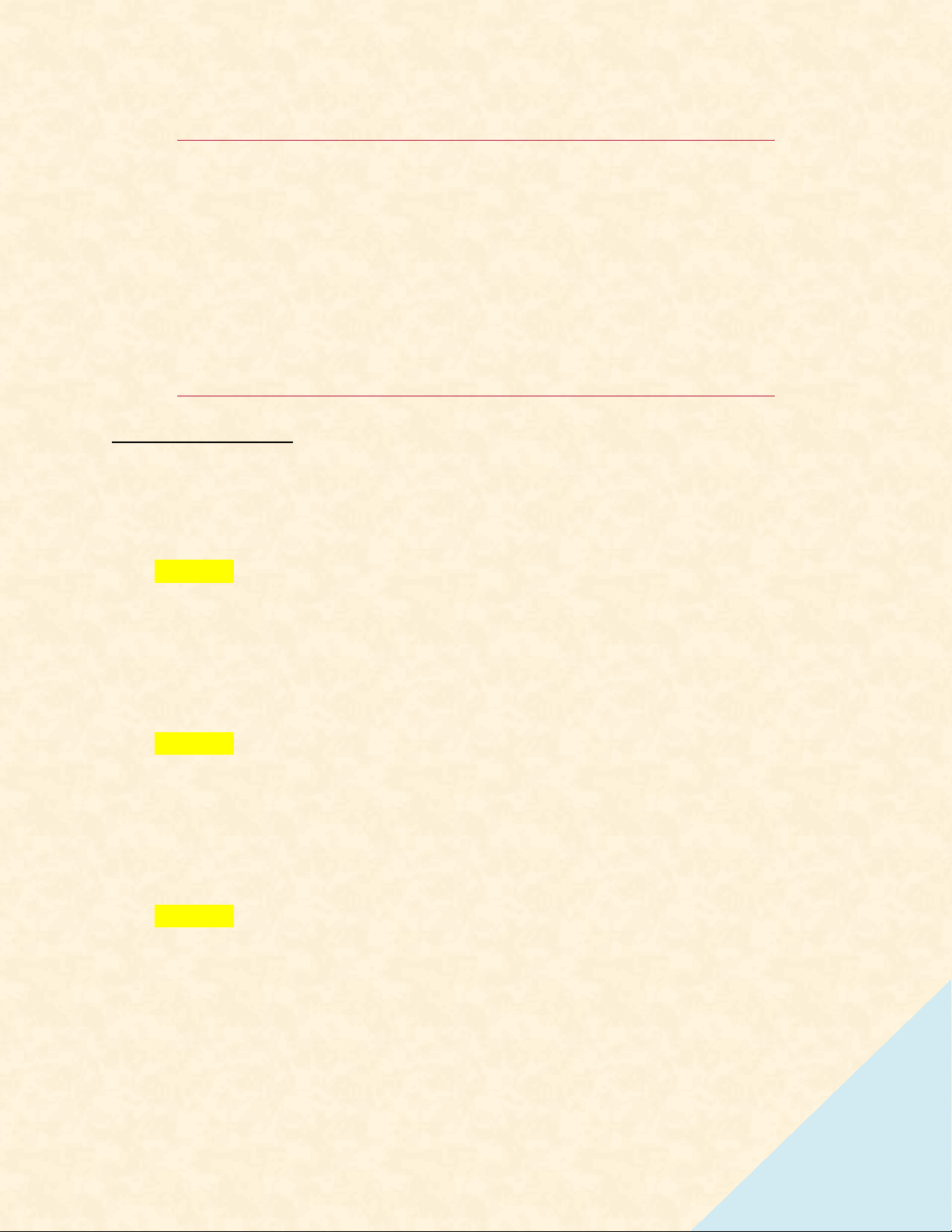
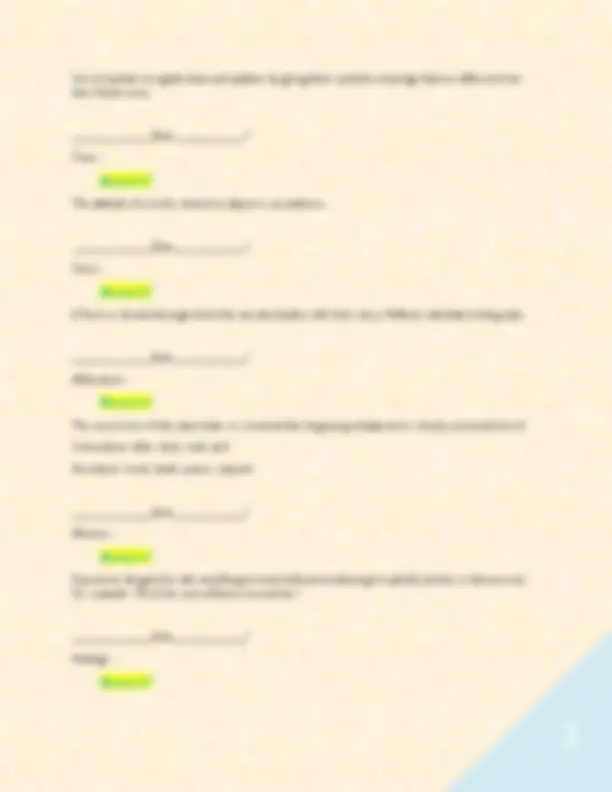
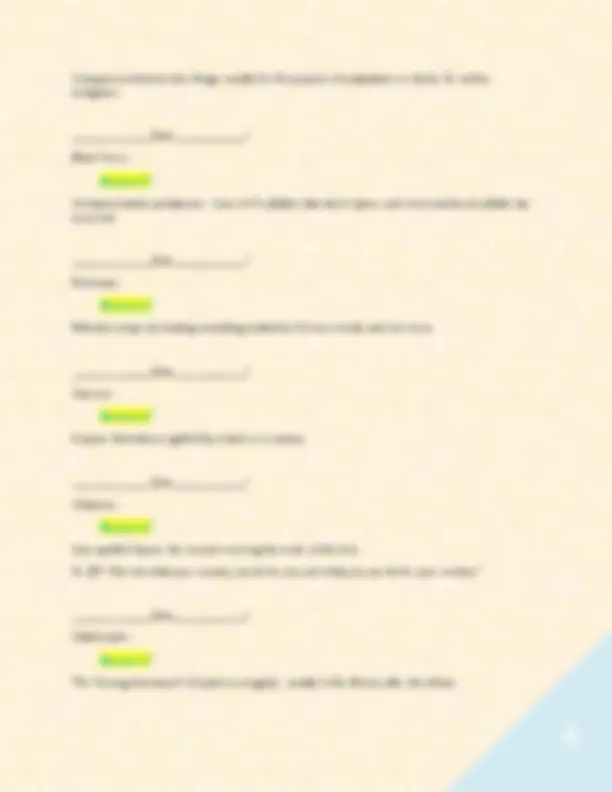
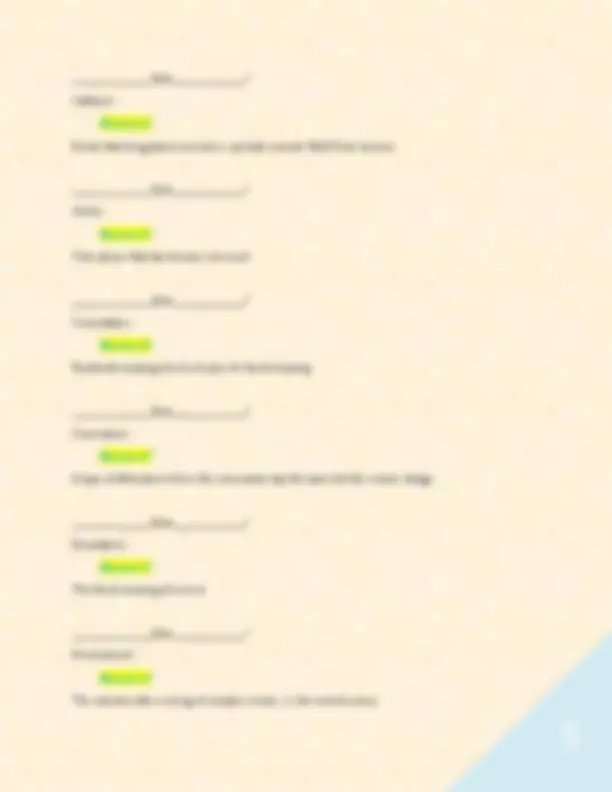
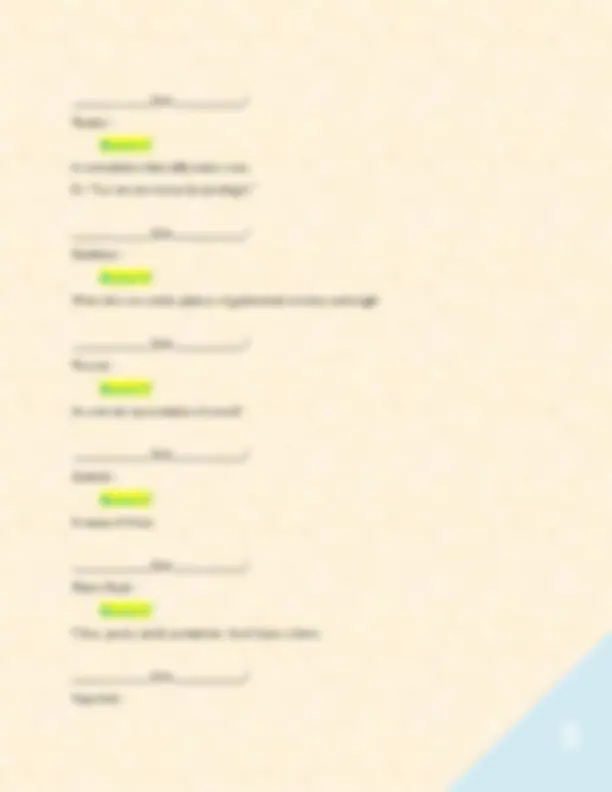
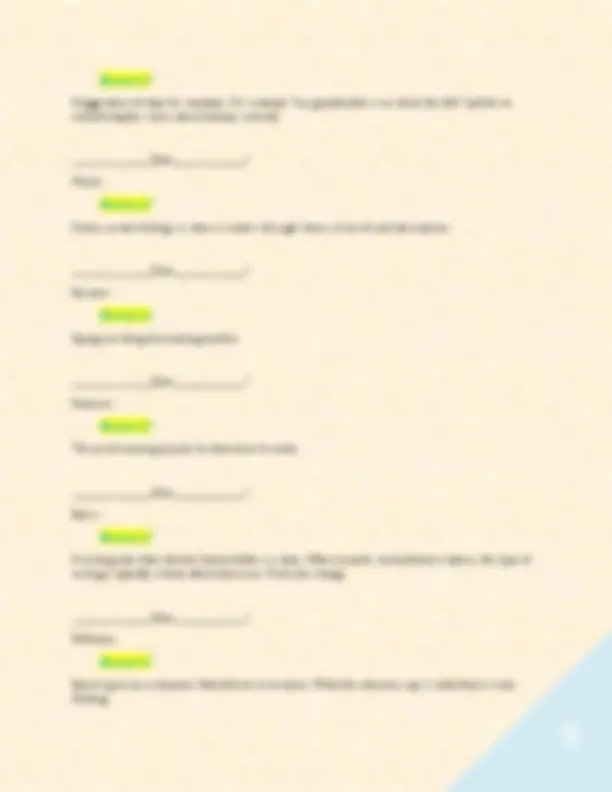
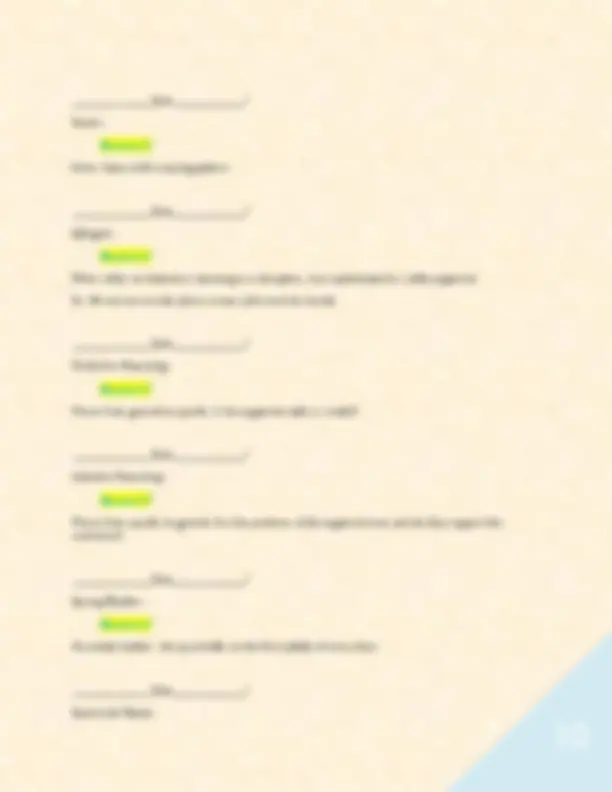
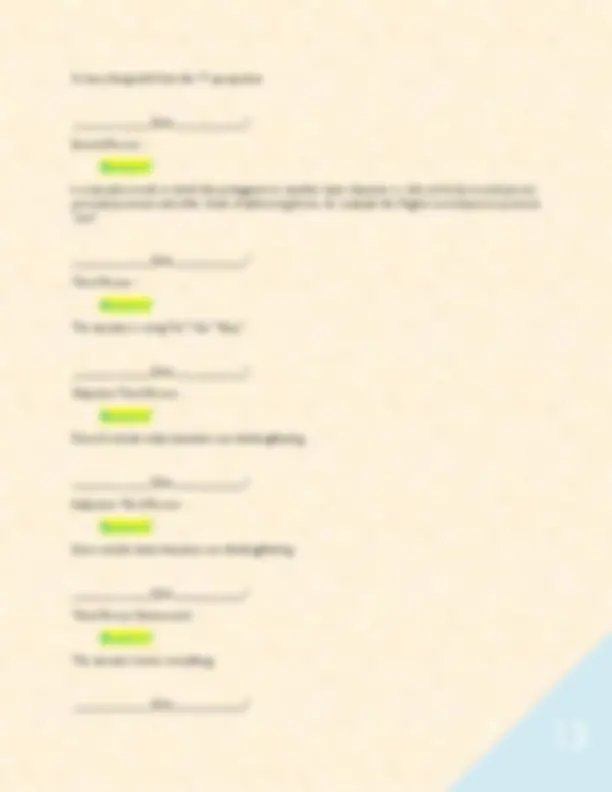
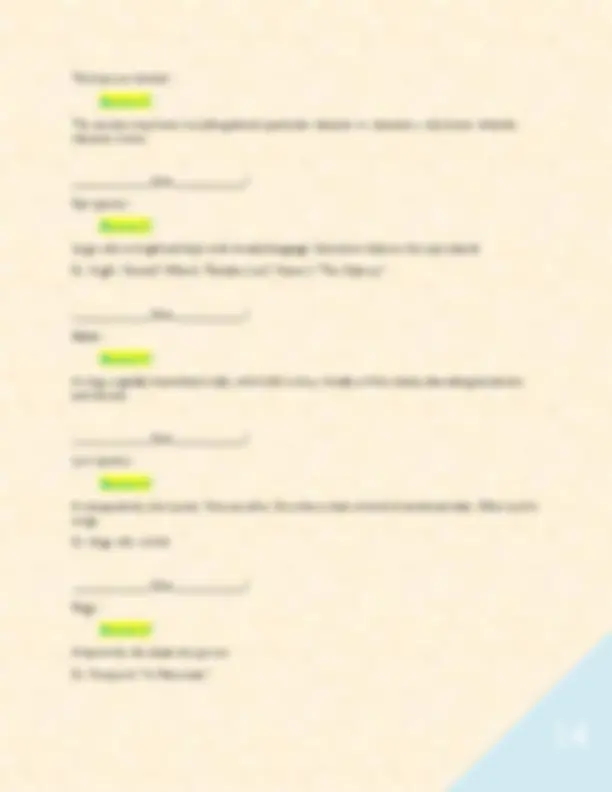
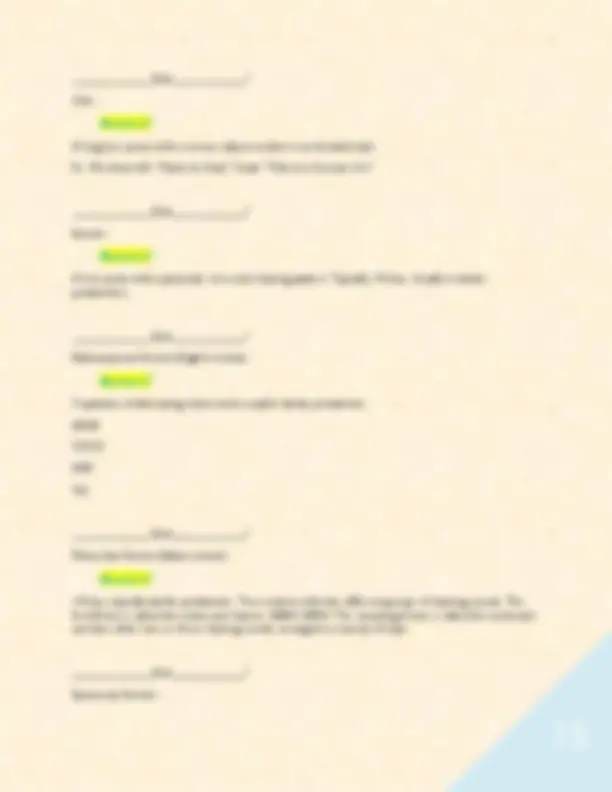
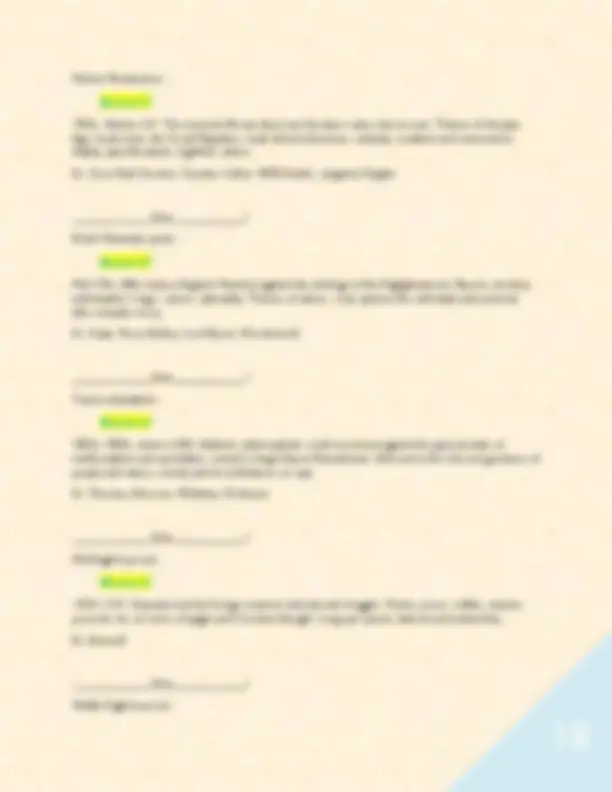
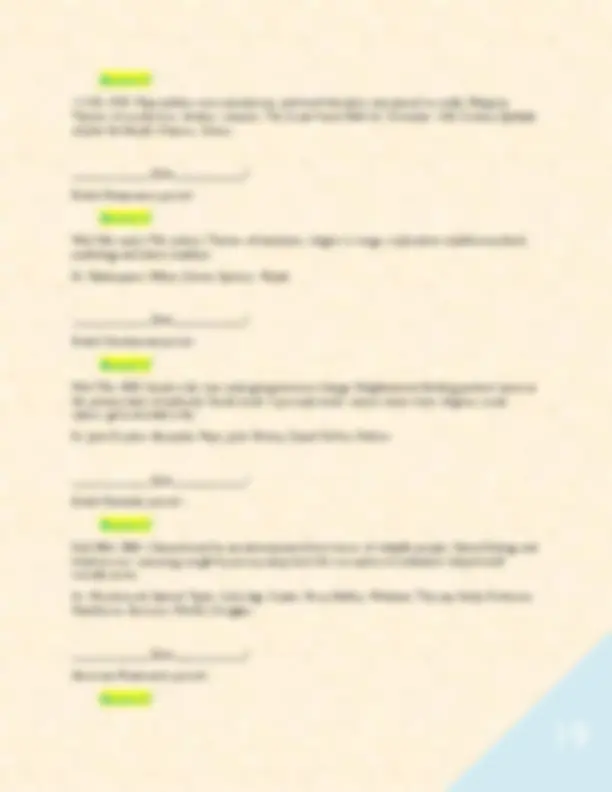
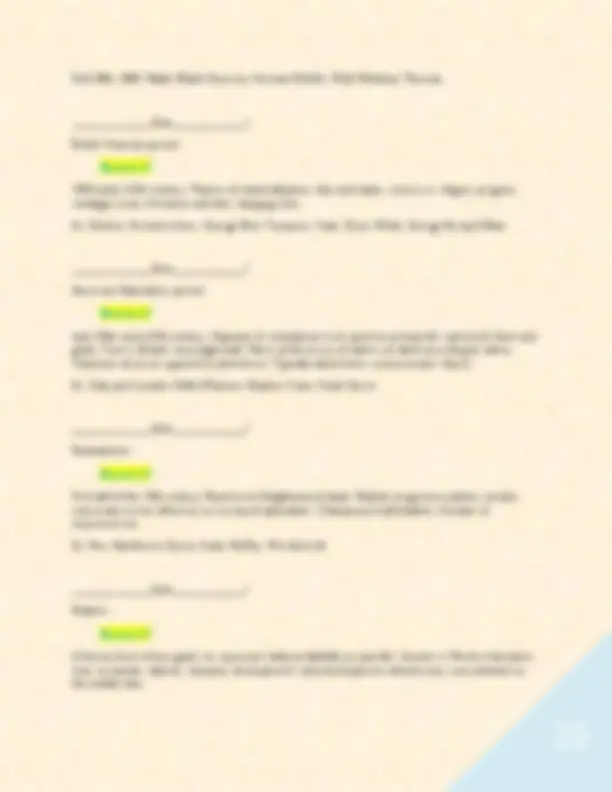
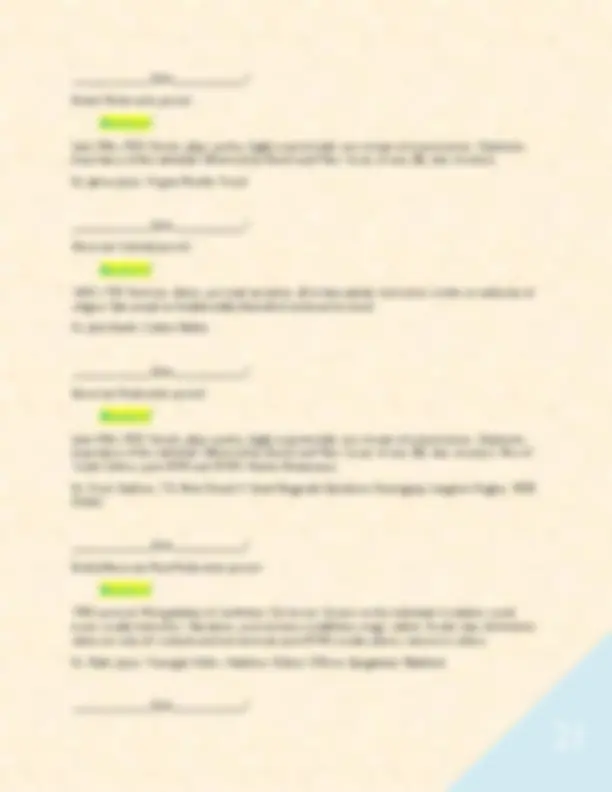
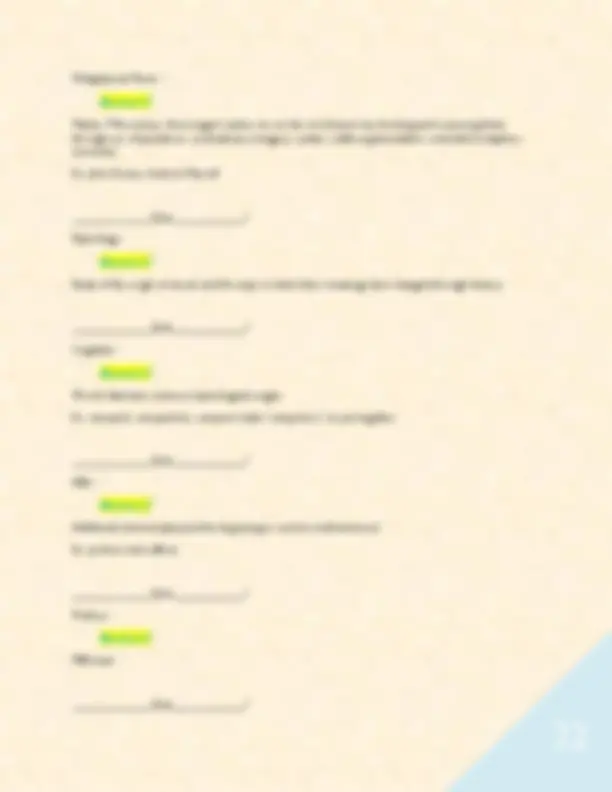
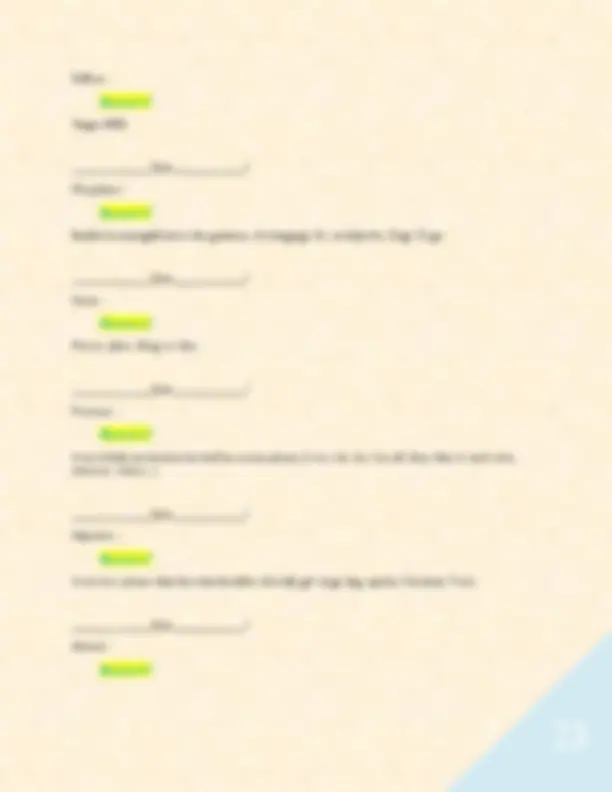
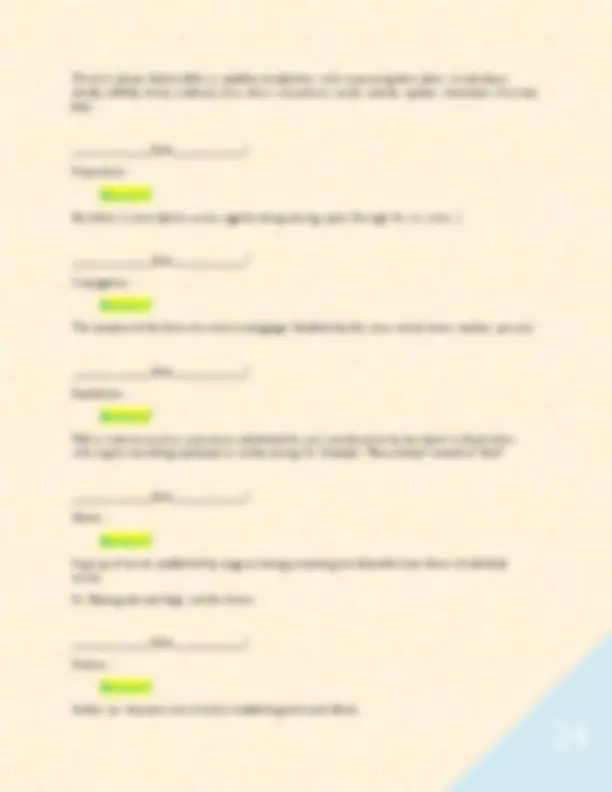
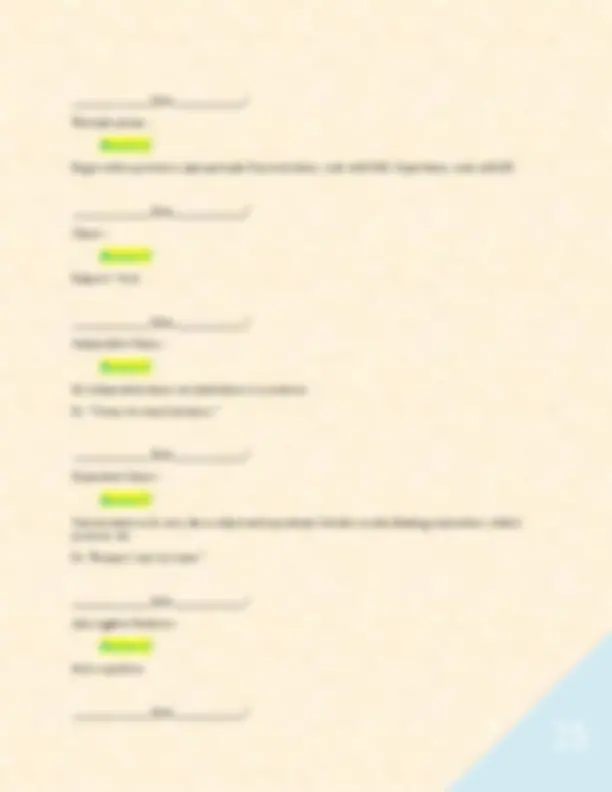
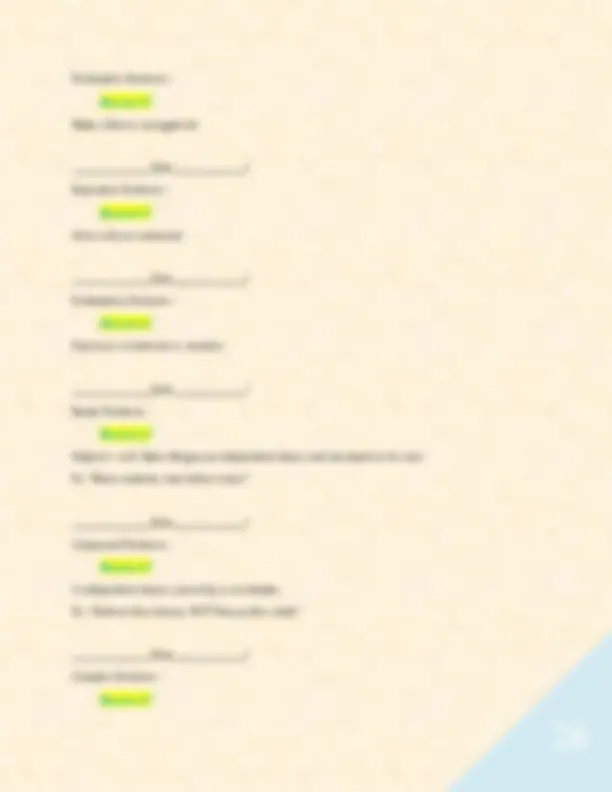
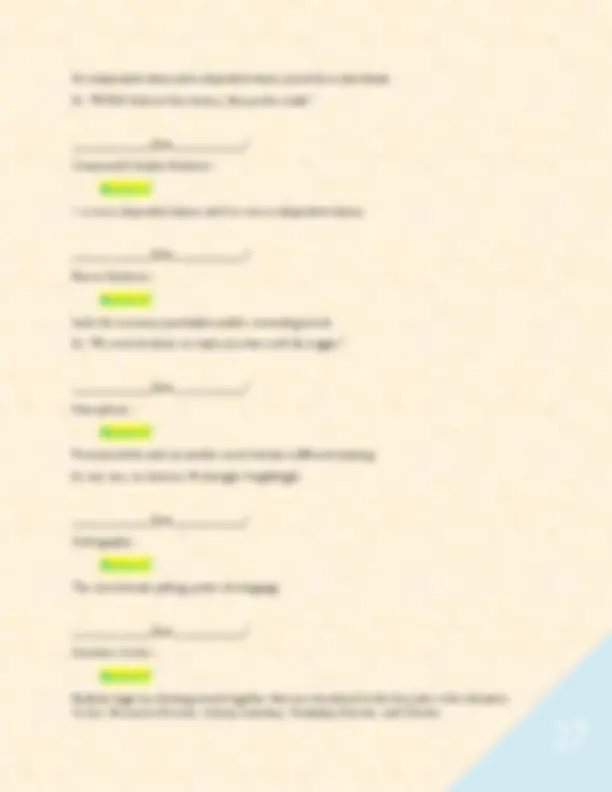
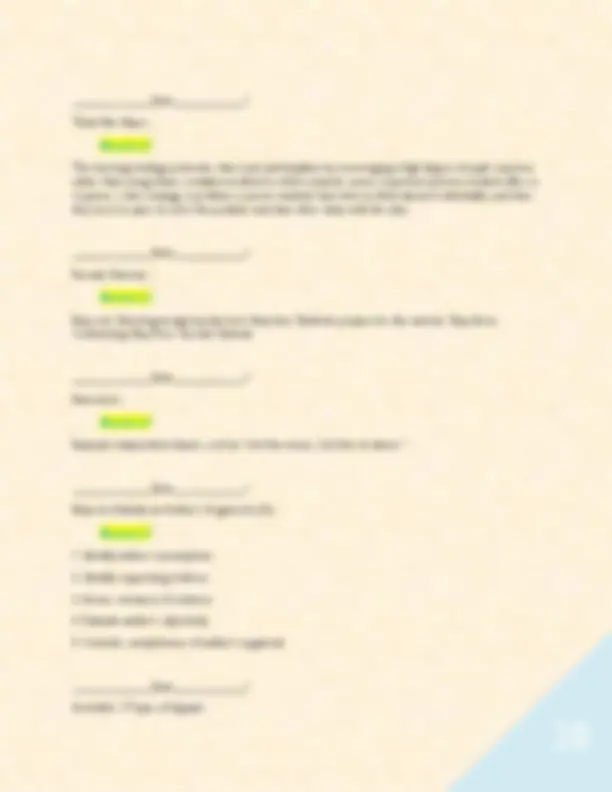
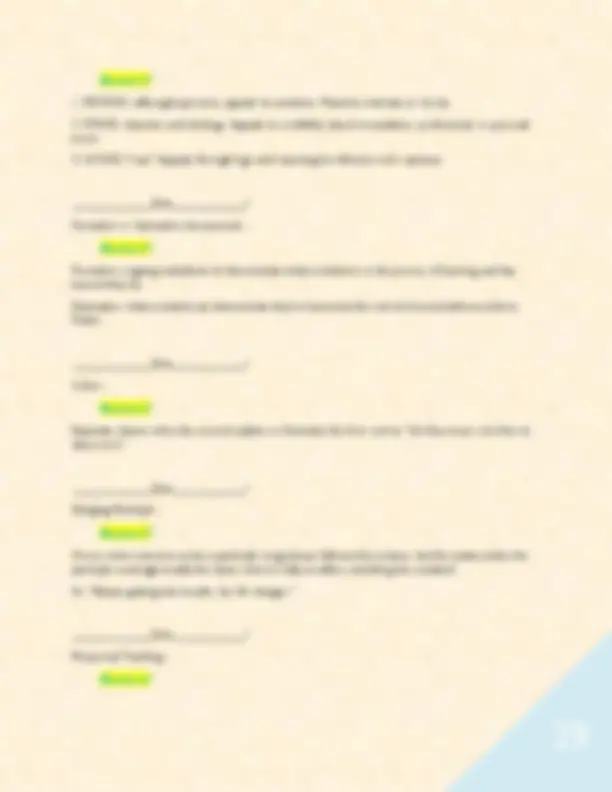
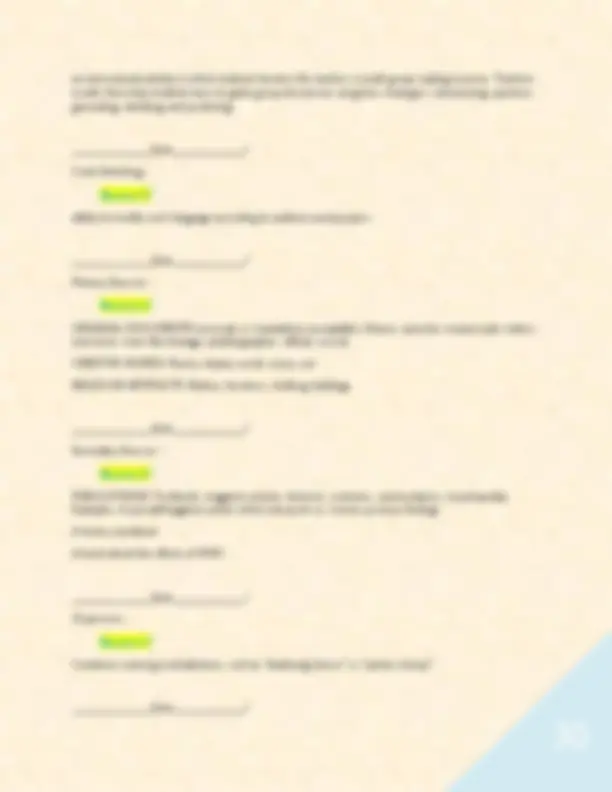
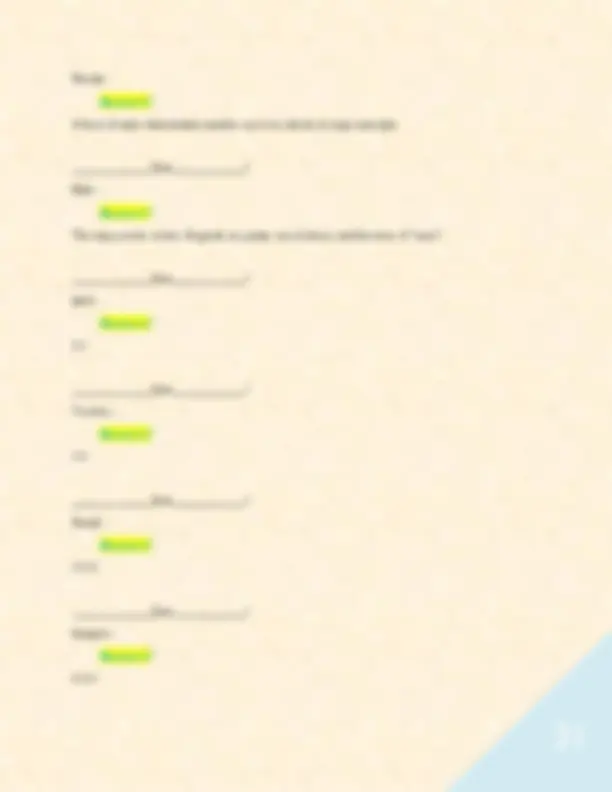
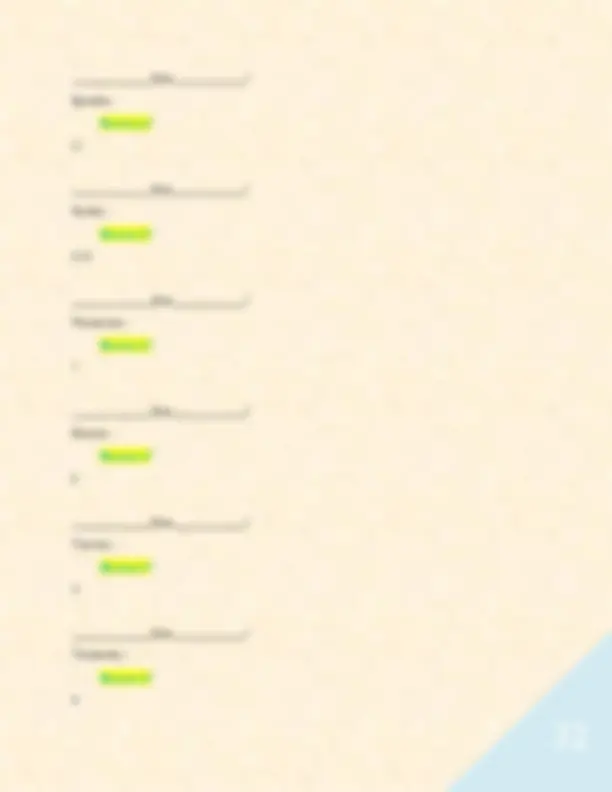
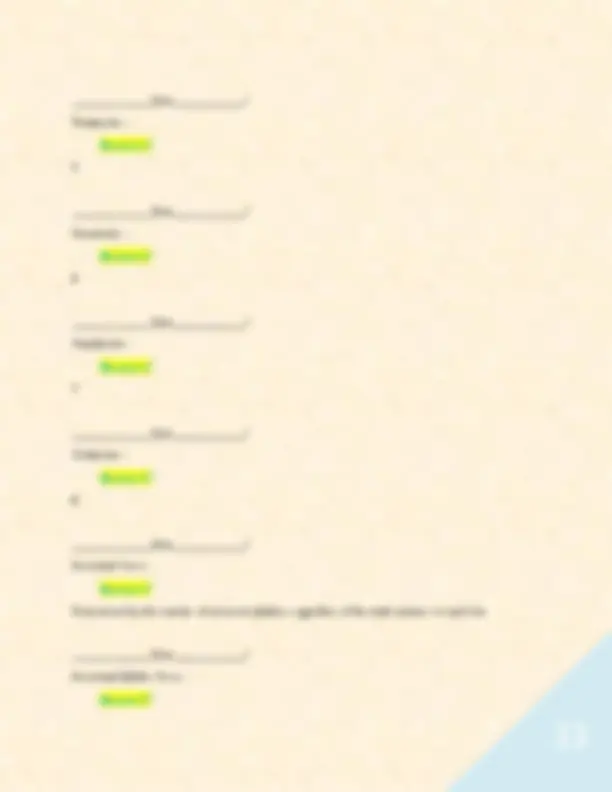
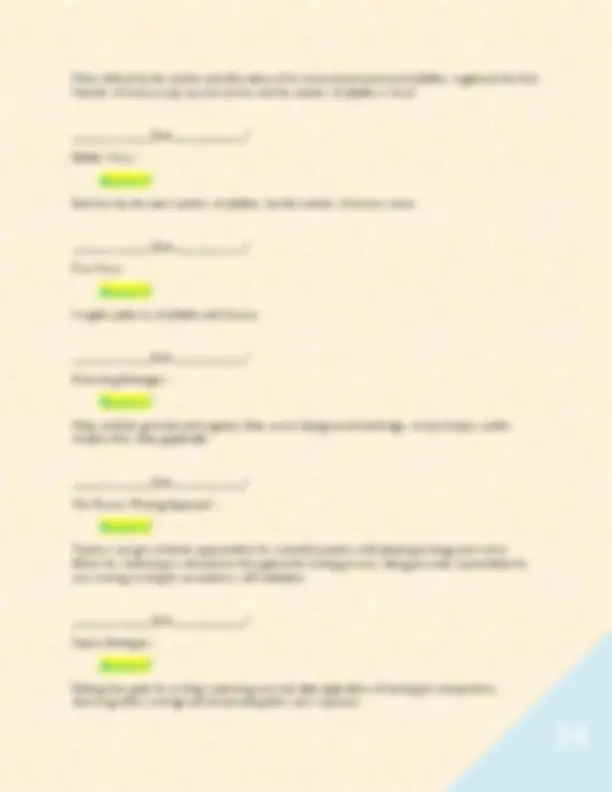
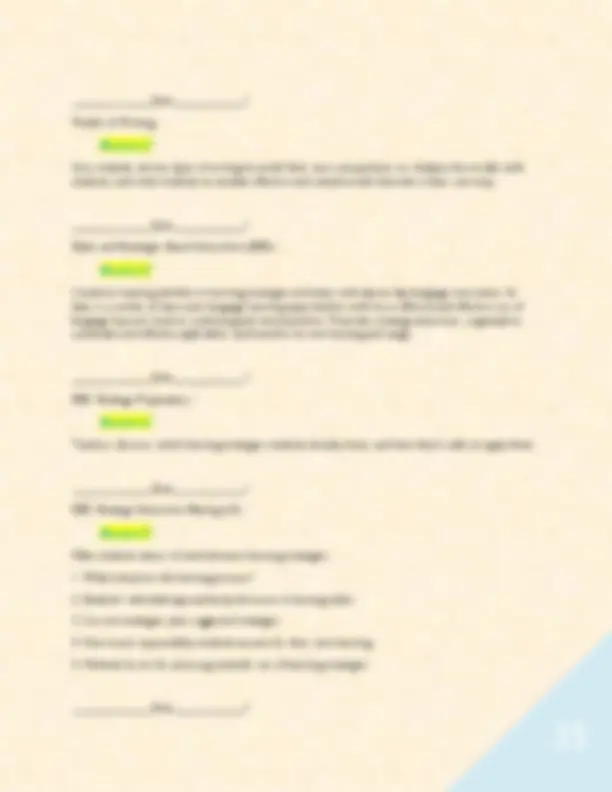
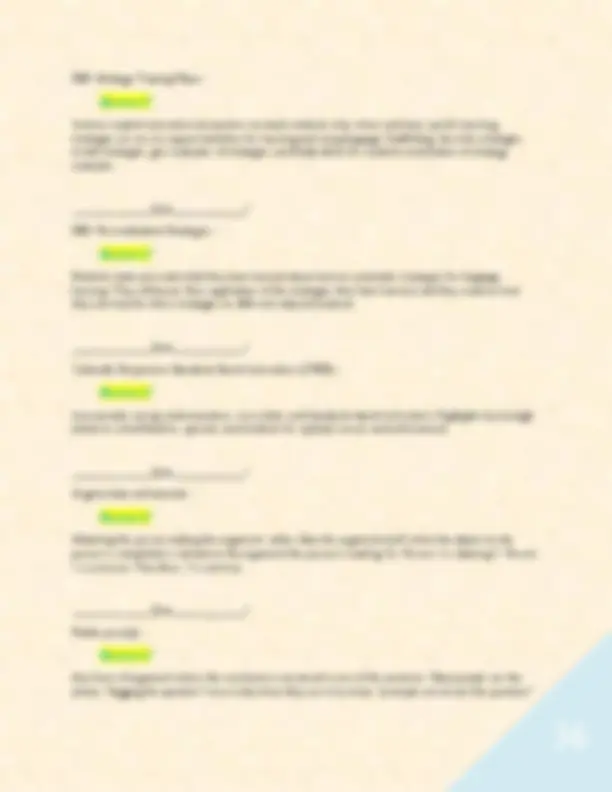
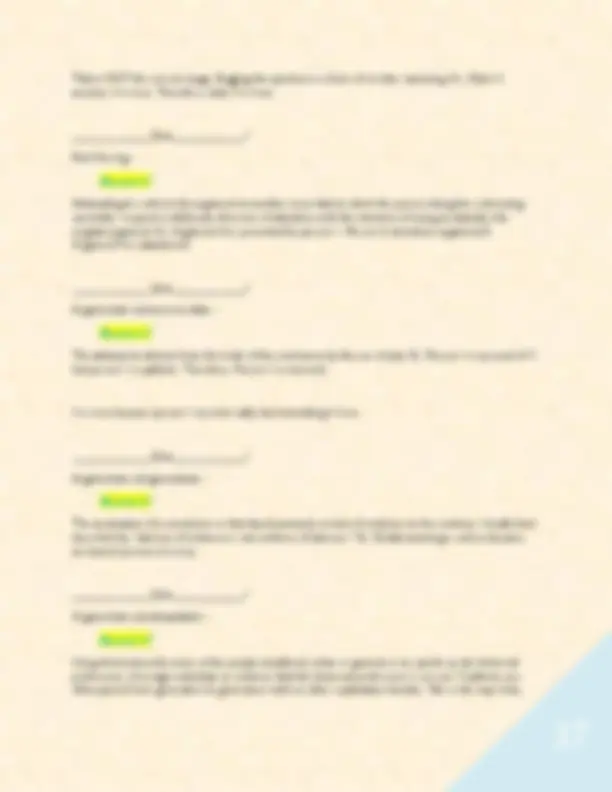
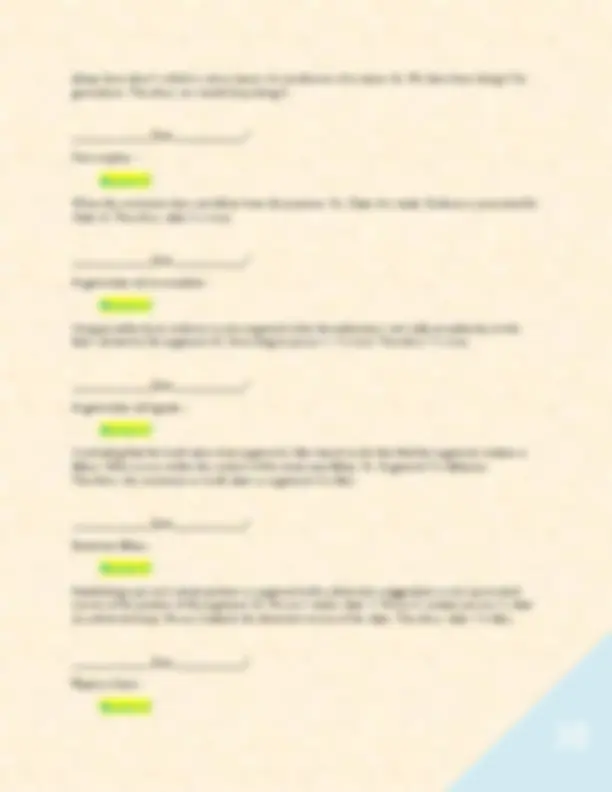
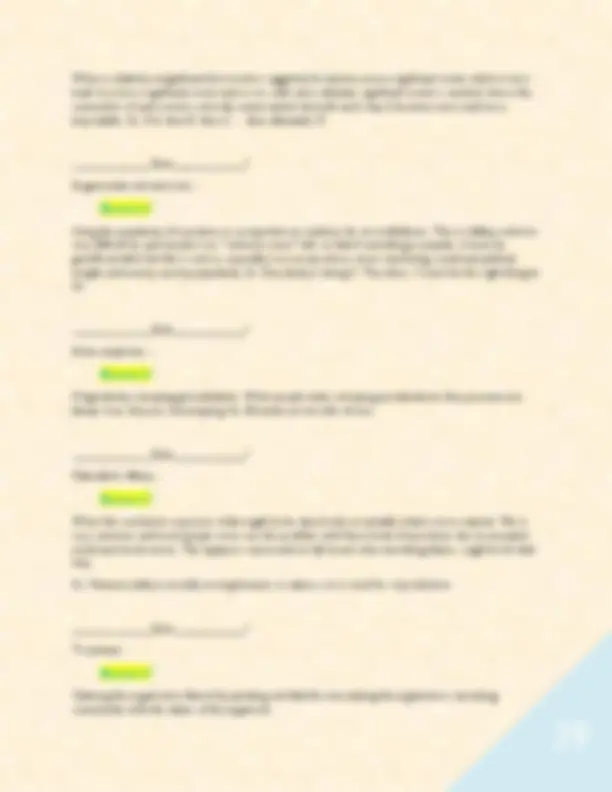
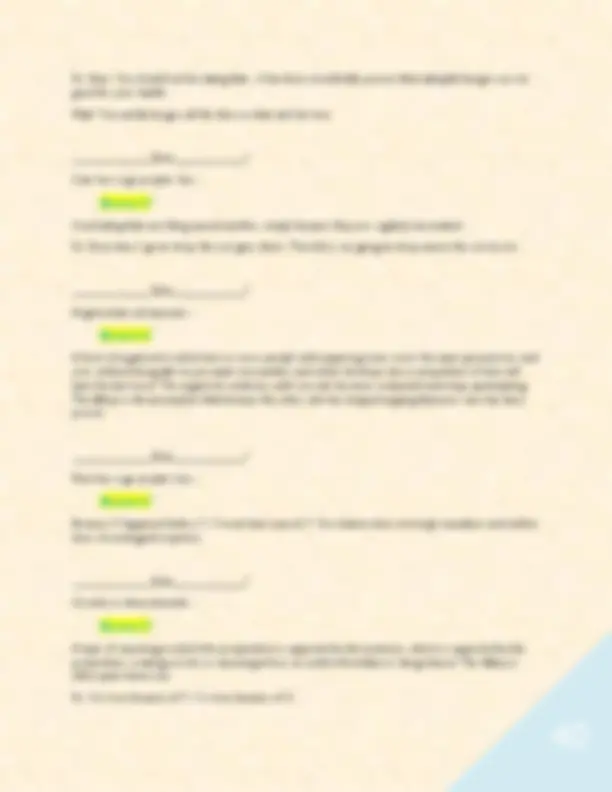
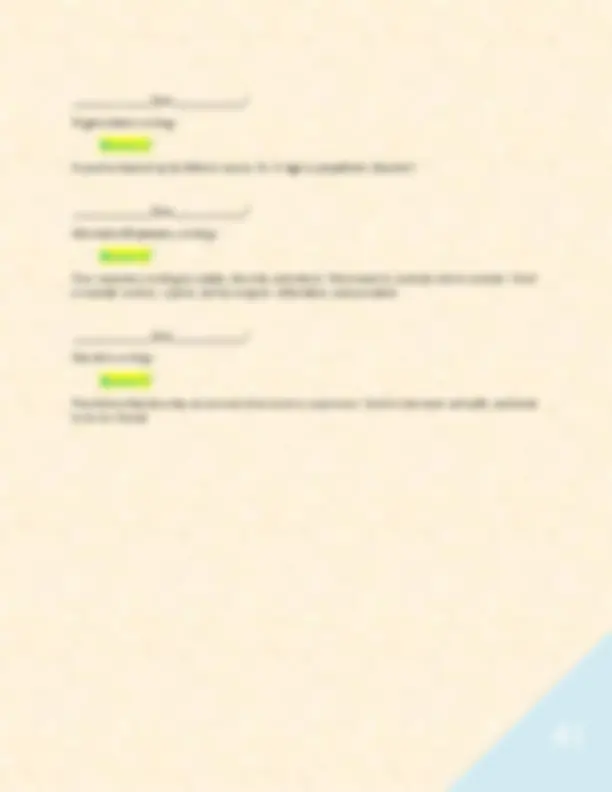


Study with the several resources on Docsity

Earn points by helping other students or get them with a premium plan


Prepare for your exams
Study with the several resources on Docsity

Earn points to download
Earn points by helping other students or get them with a premium plan
Community
Ask the community for help and clear up your study doubts
Discover the best universities in your country according to Docsity users
Free resources
Download our free guides on studying techniques, anxiety management strategies, and thesis advice from Docsity tutors
Praxis: English Language Arts: Content Knowledge (5038) (A combination of vocabulary terms, teaching methods, and descriptions of different literary periods). Terms in this set (201) _____________Quiz____________? Apostrophe - Answer✓✓ Addressing some abstraction or personification that is not physically present. _____________Quiz____________? Setting - Answer✓✓ An environment or surrounding in which a story takes place. _____________Quiz____________? Anaphora - Answer✓✓ Regularly repeats a word or phrase at the beginning of consecutive clauses/phrases to add emphasis. Ex: Winston Churchill "we shall fight on the beaches, we shall fight on the landing grounds, we shall fight in the fields and in the streets..." _____________Quiz____________? Antithesis -
Typology: Exams
1 / 41

This page cannot be seen from the preview
Don't miss anything!


































Terms in this set (201) _____________Quiz____________? Apostrophe -
Addressing some abstraction or personification that is not physically present. _____________Quiz____________? Setting -
An environment or surrounding in which a story takes place. _____________Quiz____________? Anaphora -
Regularly repeats a word or phrase at the beginning of consecutive clauses/phrases to add emphasis. Ex: Winston Churchill "we shall fight on the beaches, we shall fight on the landing grounds, we shall fight in the fields and in the streets..." _____________Quiz____________? Antithesis -
Using opposite phrases in close conjunction. Ex: Alexander Pope, "To err is human; to forgive divine." _____________Quiz____________? Anastrophe -
Inverted order of words or events as a rhetorical scheme. Ex: "What a wonderful world it is." _____________Quiz____________? Anticlimax -
A drop from a dignified or important idea...usually ridiculous or humorous. _____________Quiz____________? Anecdote -
A brief story authors may relate, which can illustrate their points in a more relatable way. _____________Quiz____________? Archetype -
Universal symbol _____________Quiz____________? Symbolism -
Comparison between two things--usually for the purpose of explanation or clarity. Ex: similes, metaphors _____________Quiz____________? Blank Verse -
Unrhymed iambic pentameter - lines of 10 syllables that don't rhyme, each even-numbered syllable has an accent. _____________Quiz____________? Burlesque -
Ridicules a topic by treating something exalted as if it were trivial, and vice versa. _____________Quiz____________? Caesura -
A pause. Sometimes signified by a slash or a comma. _____________Quiz____________? Chiasmus -
Uses parallel clauses, the second reversing the order of the first. Ex: JFK "Ask not what your country can do for you; ask what you can do for your country." _____________Quiz____________? Catastrophe -
The "turning downward" of a plot in a tragedy - usually in the 4th act, after the climax.
_____________Quiz____________? Catharsis -
Events that bring about a moral or spiritual renewal. Relief from tension. _____________Quiz____________? Cliché -
Trite phrase that has become overused. _____________Quiz____________? Connotation -
Emotional meaning of a word, plus it's literal meaning. _____________Quiz____________? Consonance -
A type of alliteration where the consonants stay the same but the vowels change. _____________Quiz____________? Denotation -
The literal meaning of a word. _____________Quiz____________? Denouement -
The outcome after a string of complex events, i.e. the end of a story.
_____________Quiz____________? Metaphor -
A figure of speech/word/phrase that is applied to an object or action to which is not literally applicable. Ex: "My brother was boiling mad". _____________Quiz____________? Figurative Language -
Offers readers insight into people, events, things, or subjects beyond the page. Ex: alliteration, personification, imagery, simile, metaphor, onomatopoeia, hyperbole. _____________Quiz____________? Allegory -
Figure of speech with abstract ideas, used to describe characters/figures/events. Ex: Animal Farm (animals used as communists) _____________Quiz____________? Sentence Fragment -
Missing some essential component: a subject, predicate, or a dependent clause with no independent clause. Ex: "When we got in the car. We rolled down the windows." _____________Quiz____________? Aphorism -
Concisely state common beliefs and may often rhyme. Ex: Benjamin Franklin's "early to bed and early to rise..."
_____________Quiz____________? Paradox -
A contradiction that oddly makes sense. Ex: "You can save money by spending it." _____________Quiz____________? Parallelism -
When there are similar patterns of grammatical structure and length. _____________Quiz____________? Persona -
An external representation of oneself. _____________Quiz____________? Quatrain -
A stanza of 4 lines. _____________Quiz____________? Rhyme Royal -
7 lines, poetry, iambic pentameter, fixed rhyme scheme. _____________Quiz____________? Hyperbole -
_____________Quiz____________? Sestet -
6 - line rhyme with a varying pattern. _____________Quiz____________? Syllogism -
Refers either to deductive reasoning or a deceptive, very sophisticated or subtle argument. Ex: All men are mortal. John is a man. John must be mortal. _____________Quiz____________? Deductive Reasoning -
Moves from general to specific. Is the argument valid, or invalid? _____________Quiz____________? Inductive Reasoning -
Moves from specific to general. Are the premises of the argument true, and do they support the conclusion? _____________Quiz____________? Sprung Rhythm -
Accentual rhythm - the accent falls on the first syllable of every foot. _____________Quiz____________? Spenserian Stanza -
9 - line stanza - first eight lines are pentameter and the last line is alexandrine. _____________Quiz____________? Stock Character -
Appears repeatedly in a particular literary genre. _____________Quiz____________? Strophe -
A stanza sung aloud, alternating with the antistrophe. _____________Quiz____________? Synecdoche -
A part of an object representing the whole. _____________Quiz____________? Terza Rima -
3 - line stanza form with interlocking rhymes that move from one stanza to the next. ABA BCB CDC _____________Quiz____________? Zuegma -
Using a single verb to defer to two different objects in a way that is unusual - "kill the boys and the luggage"
A story being told from the "I" perspective _____________Quiz____________? Second Person -
is a narrative mode in which the protagonist or another main character is referred to by second-person personal pronouns and other kinds of addressing forms, for example the English second-person pronoun "you". _____________Quiz____________? Third Person -
The narrator is using "he" "she" "they" _____________Quiz____________? Objective Third Person -
Doesn't include what characters are thinking/feeling. _____________Quiz____________? Subjective Third Person -
Does include what characters are thinking/feeling. _____________Quiz____________? Third Person Omnicscient -
The narrator knows everything. _____________Quiz____________?
Third person Limited -
The narrator may know everything about a particular character or characters; only knows what the character knows. _____________Quiz____________? Epic (poem) -
Large scale in length and topic with elevated language. Sometimes features the supernatural. Ex: Virgil's "Aeneid", Milton's "Paradise Lost", Homer's "The Odyssey" _____________Quiz____________? Ballad -
A song, originally transmitted orally, which tells a story. Usually a 4-line stanza, alternating tetrameter and trimeter. _____________Quiz____________? Lyric (poem) -
A comparatively short poem. Non-narrative. Describes a state of mind of emotional state. Often used in songs. Ex: elegy, ode, sonnet _____________Quiz____________? Elegy -
A lament for the death of a person. Ex: Tennyson's "In Memoriam"
_____________Quiz____________? Narrative Poetry -
A verbal representation in verse of a sequence of events with a plot. Always told by a narrator. Representatives of epics and ballads. _____________Quiz____________? Novel -
Fictitious prose narrative, with some degree of realism usually _____________Quiz____________? Prose (poem) -
Written/spoken language in it's ordinary form, without metrical structure _____________Quiz____________? Haiku -
5 syllables in first line, 7 Syllables in the second, and 5 Syllables in the third line _____________Quiz____________? Bildungsroman -
An "education novel" focusing on coming-of-age stories, including youth's struggles and searches for things such as identity, spiritual understanding, or the meaning in life. Ex: "David Copperfield," "Great Expectations," "Catcher in the Rye," "Lord of the Flies" _____________Quiz____________? Novel of Manners -
Fictional stories that observe, explore, and analyze the social behaviors of a specific time and place. Characteristics include descriptions of society w/ defined behavioral codes; use of standardized, impersonal formulas in language; inhibition of emotional expression. Ex: Jane Austen _____________Quiz____________? Roman à Clef -
"Novel with a key", meaning the story needs a real-life frame of reference for full comprehension. Often disguises truths too dangerous for the author to state explicitly. Ex: "Animal Farm", "Canterbury Tales: the Nun's Priest's Tale" _____________Quiz____________? Gothic (novel) -
Combined elements of horror and romance. For Example: Edgar Allen Poe's "The Casque of Amontillado" _____________Quiz____________? Pastoral (novel) -
Novel set in beautiful, rural, landscapes _____________Quiz____________?
~1100-- 15 00. Many authors were anonymous, and much literature was passed on orally. Religious. Themes of courtly love, chivalry, romance. The Great Vowel Shift. Ex: Ormulum, 12th Century Epithath of John the Smyth, Chaucer, Gower. _____________Quiz____________? British Renaissance period -
Mid-15th--early-17th century. Themes of humanism, religion vs. magic, exploration, math/science/tech, mythology and classic tradition. Ex: Shakespeare, Milton, Donne, Spenser, Wyatt. _____________Quiz____________? British Neoclassical period -
Mid-17th--1800. Social order was undergoing immense change. Enlightenment thinking pushed reason as the primary basis of authority. Social needs > personal needs; reason comes from religious, social, nature, governmental order. Ex: John Dryden, Alexander Pope, John Wesley, Daniel DeFoe, Molière _____________Quiz____________? British Romantic period -
End-18th--1860. Characterized by narratives/poems/short stores of relatable people. Valued feelings and intuition over reasoning; sought to journey away form the corruption of civilization; helped instill societal norms. Ex: Wordsworth, Samuel Taylor Coleridge, Keates, Percy Shelley, Whitman, Thoreau, Emily Dickinson, Hawthorne, Emerson, Melville, Douglass _____________Quiz____________? American Renaissance period -
End-18th--1860. Ralph Waldo Emerson, Herman Melville, Walt Whitman, Thoreau _____________Quiz____________? British Victorian period -
1830 - early--20th century. Themes of industrialization, class and status, science vs. religion, progress, nostalgia, issues of women and their changing roles. Ex: Dickens, Bronteë sisters, George Eliot, Tennyson, Yeats, Oscar Wilde, George Bernard Shaw _____________Quiz____________? American Naturalistic period -
Late-19th--early-20th century. Opposite of romanticism in its quest to protray the real world. Dark and gritty. Tone is distant, non-judgmental. Man is at the mercy of nature, an dacts according to nature. Character-driven as opposed to plot-driven. Typically about lower socioeconomic classes. Ex: Zola, Jack London, Edith Wharton, Stephen Crane, Frank Norris _____________Quiz____________? Romanticism -
First half of the 19th century. Reaction to Enlightenment ideals. Radical, progressive politics, yet also conservative in its influences on increased nationalism. Championed individualism, freedom of expression etc. Ex: Poe, Hawthorne, Byron, Keats, Shelley, Wordsworth _____________Quiz____________? Realism -
A literary form whose goal is to represent reality as faithfully as possible. Genesis in Western literature. Uses vernacular; dialects; character development > plot development; ethical issues; concentrated on the middle-class.